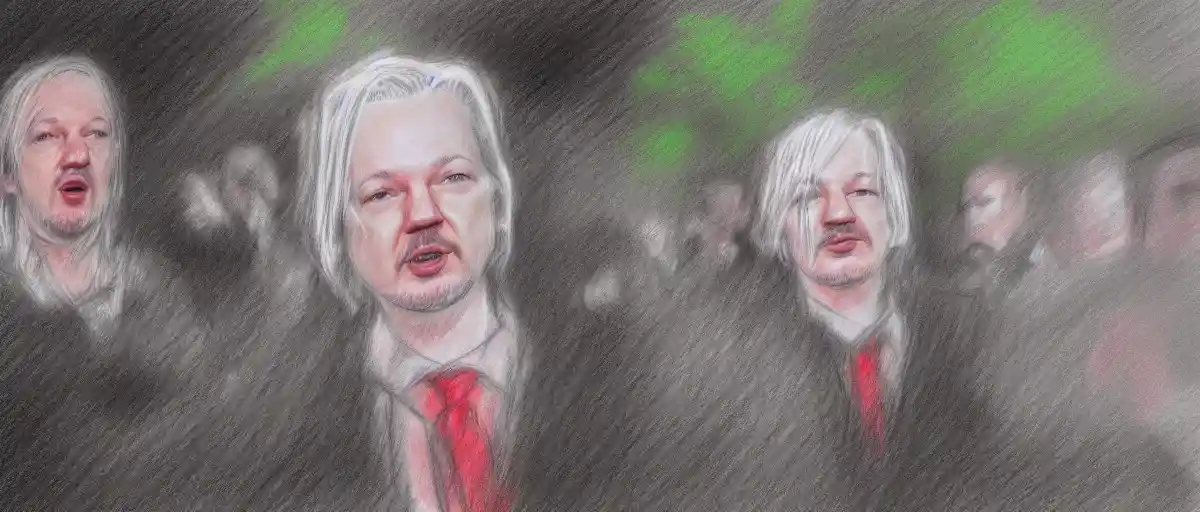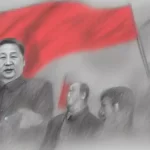This Could Also Be Right Up Your Alley:
High-Stake Battle: Charges Against Julian Assange Challenged as Supporters Rally Outside Attorney General’s Residence
Amidst the ongoing legal proceedings against Julian Assange, the founder of WikiLeaks, his steadfast supporters organized a vigil outside the residence of Attorney General Merrick Garland, demanding the charges against him be dropped. This provocative event aimed to shed light on Assange’s case and galvanize support for his release. However, the situation is far from simple, with strong arguments for and against the actions of both Assange and his supporters.
On the one hand, Assange’s backers argue that he should be considered a journalist, entitled to First Amendment protection. They emphasize that his role in publishing classified documents, in collaboration with whistleblower Chelsea Manning, was a journalistic endeavor geared towards unveiling government misconduct. They assert that the charges against Assange set a worrying precedent for press freedom and whistleblowing, effectively chilling future journalistic endeavors.
Unsurprisingly, Assange’s critics take a different stance. They contend that Assange’s actions go beyond journalism and squarely enter the realm of criminality. They highlight his alleged role in aiding and abetting Manning’s leak of highly sensitive information, endangering lives in the process. Critics argue that Assange’s publication of classified documents undermines national security and compromises military operations. They insist that such actions cannot be justified under the First Amendment, as they cross the boundary of responsible journalism.
Moreover, the potential extradition of Assange to the United States remains a critical point of contention. Supporters fear that extradition would jeopardize Assange’s well-being, subjecting him to arbitrary detention and inhumane treatment. They express deep concerns about the precedent it may set for the treatment of whistleblowers and journalists who expose government wrongdoing.
On the opposing side, critics argue that extradition to the United States is a necessary step towards ensuring accountability for Assange’s alleged crimes. They argue that no individual, regardless of their journalistic claim, should be exempt from the consequences of their actions if they compromise national security. They believe that Assange’s release or dismissal of charges would undermine the integrity of the legal system and send a message that such breaches of confidentiality can be tolerated.
The contentious case of Julian Assange presents a moral and legal dilemma that ignites passionate arguments on both sides. As the vigil outside Attorney General Merrick Garland’s residence captivates public attention, it is essential to consider the complex nature of Assange’s actions and the principles at stake. Balancing the protection of press freedom against the responsibility to safeguard national security is a critical task that requires careful deliberation. Only time will tell how this intricate case will ultimately unfold and shape the future landscape of journalism and whistleblowing.
Here's A Video We Thought You Might Also Like:
Author Profile

- I'm a financial reporter on a mission to decode the complexities of the economy, including its connection to politics. My goal is to help readers understand the political forces that shape financial markets and impact people's lives.
Latest entries
 Breaking News2023.12.18Thrilling Revelations How Chinese Communist Party Influences US Climate Policies
Breaking News2023.12.18Thrilling Revelations How Chinese Communist Party Influences US Climate Policies Breaking News2023.12.15Nikki Haley’s Surging Fundraising Efforts A Gamechanger for the GOP Presidential Race
Breaking News2023.12.15Nikki Haley’s Surging Fundraising Efforts A Gamechanger for the GOP Presidential Race Breaking News2023.12.13Survivor Exposes Extraordinary Sexual Violence within Hamas – Why Are Some Progressives Ignoring the Truth
Breaking News2023.12.13Survivor Exposes Extraordinary Sexual Violence within Hamas – Why Are Some Progressives Ignoring the Truth Breaking News2023.12.11Captivating Decision! Representative Sheila Jackson Lee Refuses to Back Down After Crushing Defeat!
Breaking News2023.12.11Captivating Decision! Representative Sheila Jackson Lee Refuses to Back Down After Crushing Defeat!






